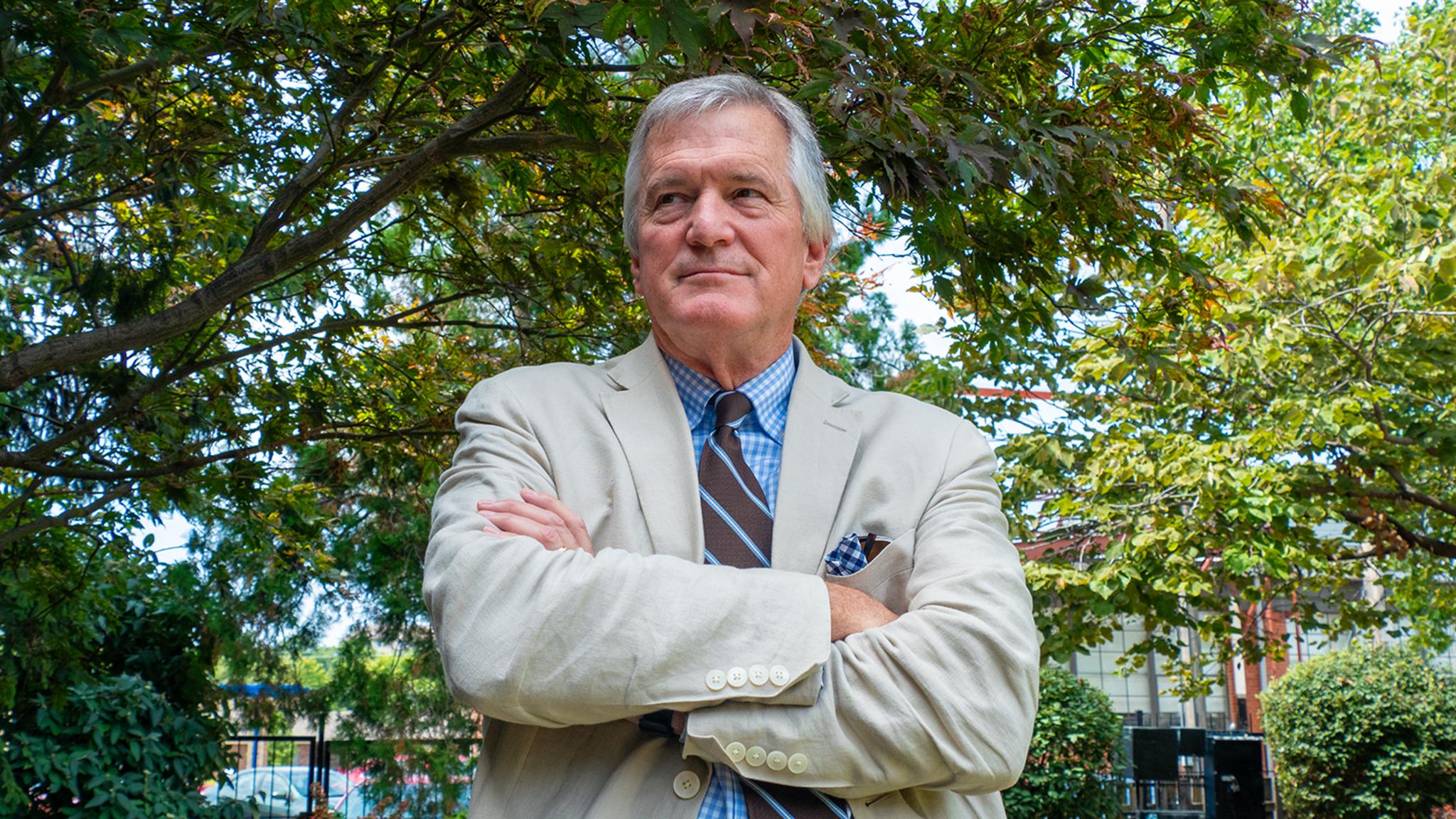By Anna Kaminski
Kansas Reflector
TOPEKA — Kansas’ legal aid group relies on remote court appearances in 22 counties in the southwest part of the state after losing its only attorney in the region in August, said Kansas Legal Services’ executive director, Matthew Keenan.
However, some judges refuse to allow virtual hearings or appearances. Others treat them as a default.
In response to inconsistent practices across courtrooms, the Kansas Supreme Court proposed a rule change to give judges a framework for holding remote appearances with the goal of increasing efficiency and access to the criminal justice system. The proposal, which is not yet in effect, has drawn mixed feelings from attorneys and judges, according to interviews and public comments submitted to the Supreme Court and obtained by Kansas Reflector.
“Kansas stands at a crossroads,” Keenan wrote in a submission dated Aug. 1. “The promise of equal justice under law cannot be fulfilled if we continue to tolerate a fragmented and discretionary approach to remote access — especially when we have the tools and technology to do better.”
While Keenan said in an Aug. 1 submission that the Supreme Court’s proposed rule offers an opportunity to ensure full access to justice, some judges see it differently.
“What we do in the courtroom is important, and it is dumbed-down when people are allowed to appear on the computer,” said Chief Judge Clinton Peterson in the 26th Judicial District, which covers the southwestern corner of the state, in a public comment dated Aug. 29 that was submitted to the Supreme Court.
“Litigants are more disrespectful. Attorneys are less professional. Remote hearings make judges look foolish and stupid,” he said.
Keenan said in-person court proceedings are the ideal, “without question.”
He said a clear and enforceable rule change allowing for presumptive remote appearances will modernize courts and better meet “constitutional mandates, public expectations and the realities of access to justice in rural and underserved areas.”
Keenan named a number of judges, emphasizing those in rural counties with few attorneys available to represent low-income defendants, who are averse to remote appearances. He said a shift to default remote proceedings is not radical, but rational.
Kansas is staring down an attorney shortage, which is expected to worsen if attorneys continue to move away from rural areas and aging attorneys aren’t replaced by younger ones.
The balance of justice
The rule attempts to balance the discretion afforded to judges while prioritizing equal access to justice. As proposed, it says a district court should hold remote proceedings or allow remote appearances if appropriate “to increase efficiency and access to the court.”
Judges would still retain discretion to deny a party’s request for a remote appearance under the rule, particularly if the request is untimely or if remote proceedings “would undermine the integrity, fairness, or effectiveness of the proceeding, such as when highly sensitive, particularly dense, or exhibit-heavy testimony is expected,” the rule said.
A court should consider a remote proceeding under the proposed rule if all parties agree, the proceeding is preliminary or for scheduling purposes, the time and expense of travel for an in-person appearance outweighs the benefits, a remote proceeding would increase access to court or help address an attorney shortage, or if a party has health concerns about attending in-person proceedings.
A group of Wichita attorneys said the Supreme Court’s proposed rule “appears to lack deference to a vital component: the consent of criminal defendants.”
A defendant has a right to be present at every appearance during their prosecution, said attorneys Dan Monnat, Eli O’Brien and Braxton Eck of the firm Monnat & Spurrier in an Aug. 4 joint letter. They said the Supreme Court should add a requirement that a court should not hold a remote hearing or permit a remote appearance if a criminal defendant objects.
“As criminal defense attorneys, we contend that the defendant has a right to be present at every single proceeding or appearance in their prosecution because a simple scheduling conference can turn into a debate about case evidence,” the attorneys wrote. “An uncontested motions hearing can become a highly contested proceeding in which the fate of the defendant’s case is decided.”
Chief Judge Bruce Gatterman of the 24th Judicial District prefaced his July 30 written public comment with the acknowledgement that he frequently uses remote proceedings.
He said they are an “invaluable tool” for the only district judge in a rural, six-county district in west-central Kansas, especially for security, preliminary or procedural issues, emergencies or summary dockets. But he said he was concerned with the way judicial discretion is treated in the rule.
“I believe the proposed rule, as written, intrudes upon judicial discretion,” he said.
He proposed eliminating the list of reasons included within the rule to guide a court’s decision to allow or deny remote proceedings.
Other judges proposed tinkering with the rule’s language, favoring wording that doesn’t bind judges to hold virtual hearings. Van Hampton, a Dodge City-based attorney, wrote in a public comment dated July 10 that the Supreme Court should go a step further and make the rule mandatory. He, like Keenan, named judges who prohibit remote proceedings.
“This practice is abusive to attorneys who reside many miles away from the District and are required by the presiding judge to travel several hours to appear for a 5-minute scheduling or ‘status’ hearing,” Hampton wrote. “This is nothing less than an attempt to punish ‘out of town’ counsel for representing parties in the abusive judge’s District.”
Not a ‘cure-all’
The national average of attorney-to-resident ratio is around 4 attorneys for every 1,000 residents, according to the American Bar Association.
In Kansas, some judicial districts have fewer than one attorney. Two have none.
Nearly 80% of Kansas attorneys live in five counties containing about half of the state’s population. Those are Douglas, Johnson, Sedgwick, Shawnee and Wyandotte counties. And about one-third of attorneys in the state are over the age of 60, according to the association.
While the Supreme Court’s proposed rule appears to be a “common sense” move, in Ann Sagan’s eyes, it’s not a cure-all.
Sagan is the new executive director of the Kansas State Board of Indigents’ Defense Services, the public defender agency that supplies attorneys for people who are charged with crimes and can’t afford one.
“Because of the rural attorney shortage, our agency has had to pay attorneys from urban areas to travel hundreds of miles across Kansas to represent defendants in rural areas,” she said in an email. “We will face even deeper attorney shortages as more and more lawyers in rural areas retire.”
The proposed rule seems to address the problems that have arisen out of the rural attorney shortage, Sagan said.
“However, it is essential that any application of this rule by the courts is done in a way that will protect the defendant’s constitutional rights and the public’s right to access the courts,” Sagan said.
It will not solve the rural attorney shortage, she said.
Rural rules
The Kansas Supreme Court created a Rural Justice Initiative Committee in 2022, charging it with examining the state’s attorney shortage, which one state Supreme Court judge said has approached a constitutional crisis.
The committee considered remote hearings as a way to address rural access woes, but it did not make a clear recommendation. The committee’s final report, which was released in 2024, said it extensively researched and studied digital tools to improve access to justice in rural Kansas. It articulated some of the same issues that have arisen in the wake of the Supreme Court’s proposed rule.
“Some members advocated for a rule mandating remote hearings in all rural Kansas courtrooms,” the report said. “Others argued that rural Kansas would be better served with more attorneys living and working in rural Kansas, and a mandatory rule detracts from that mission.”
The Kansas Supreme Court proposed the remote rule change in July, soliciting public comments until August. Lisa Taylor, the public information director for the Kansas Office of Judicial Administration, said the court received feedback from judge groups and bar association committees in addition to public comments. She said that after the public comment period for a proposed rule ends, the submissions are compiled and shared with the Supreme Court.
“The court has discretion when it decides what to do next,” she said in an email. “Among the options are to adopt the rule as proposed or with amendments, to make additional amendments and reopen it for public comment, or to take no action at all.”
This report was originally published by the Kansas Reflector, a nonprofit states newsroom. To read more stories like this, visit https://kansasreflector.com.



